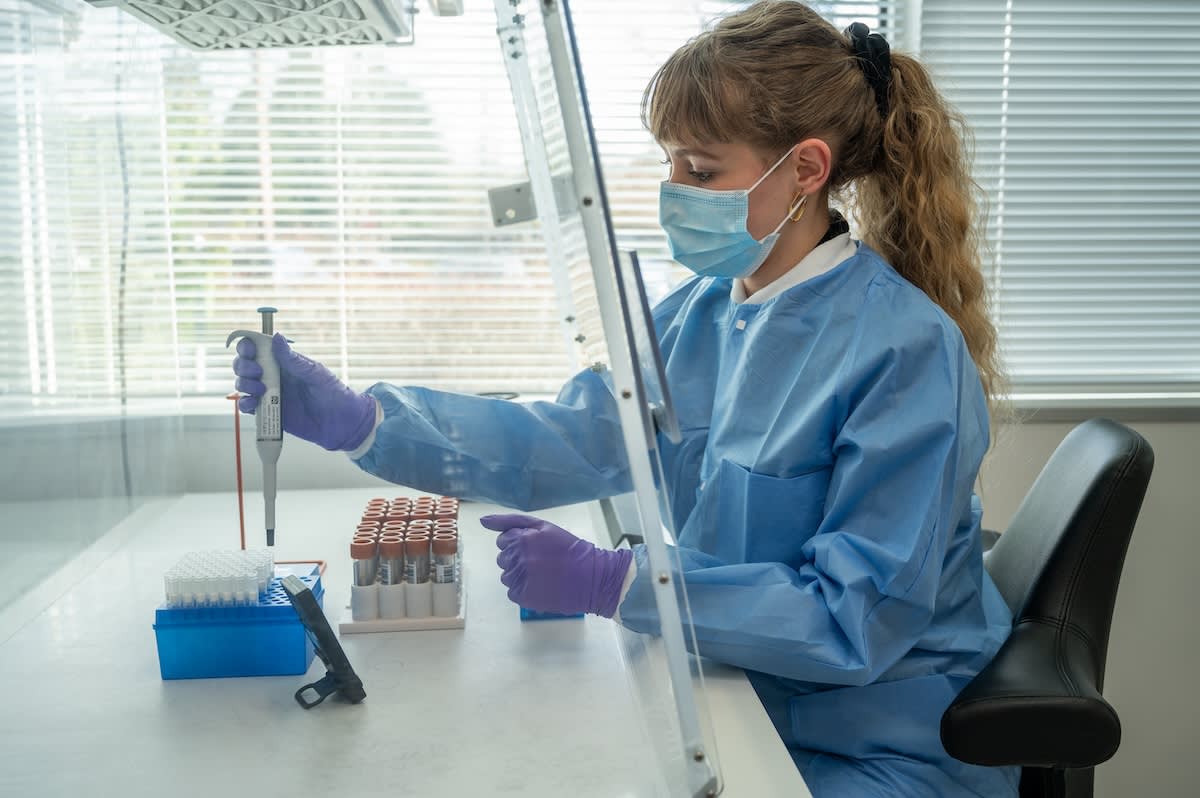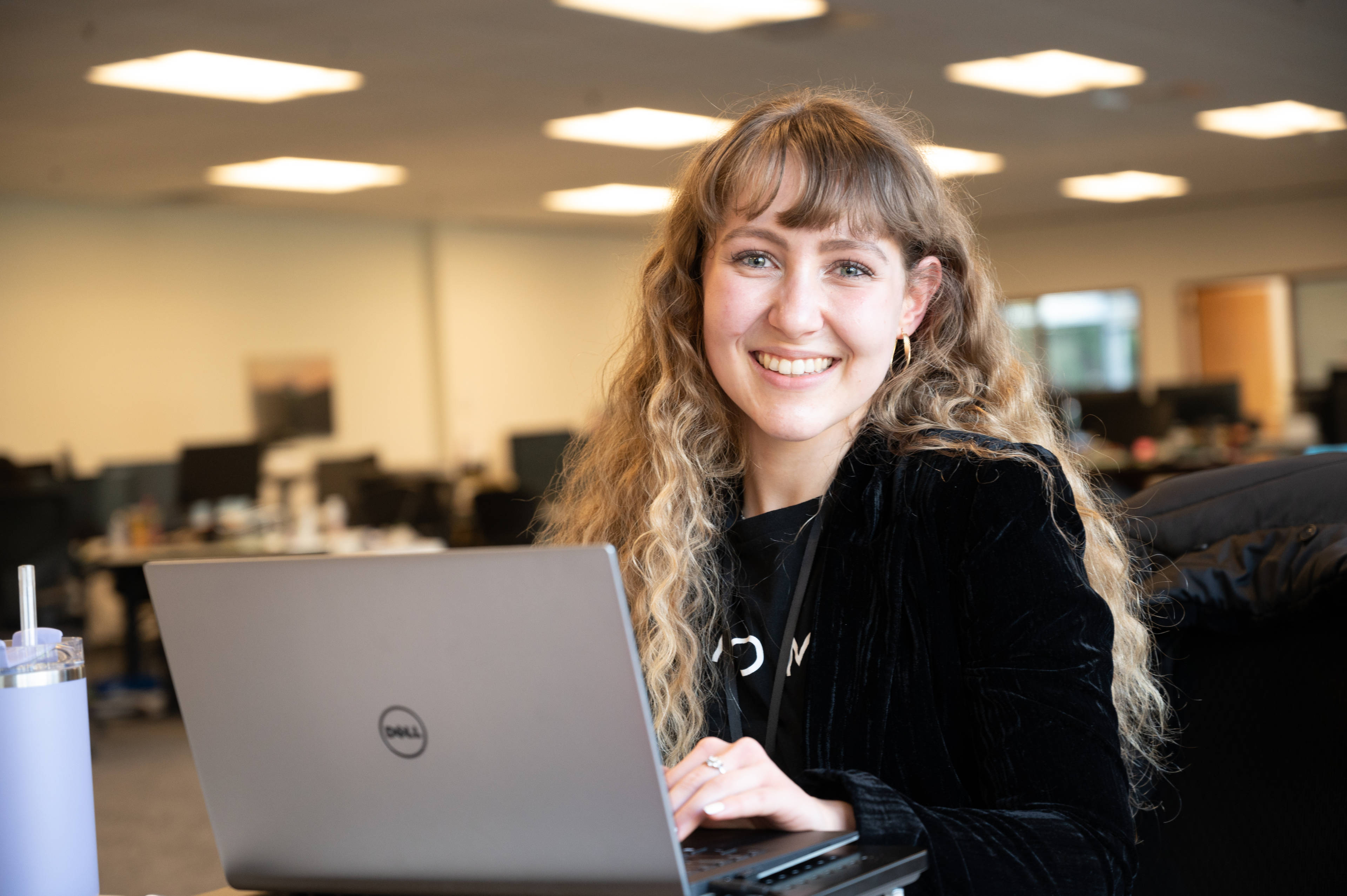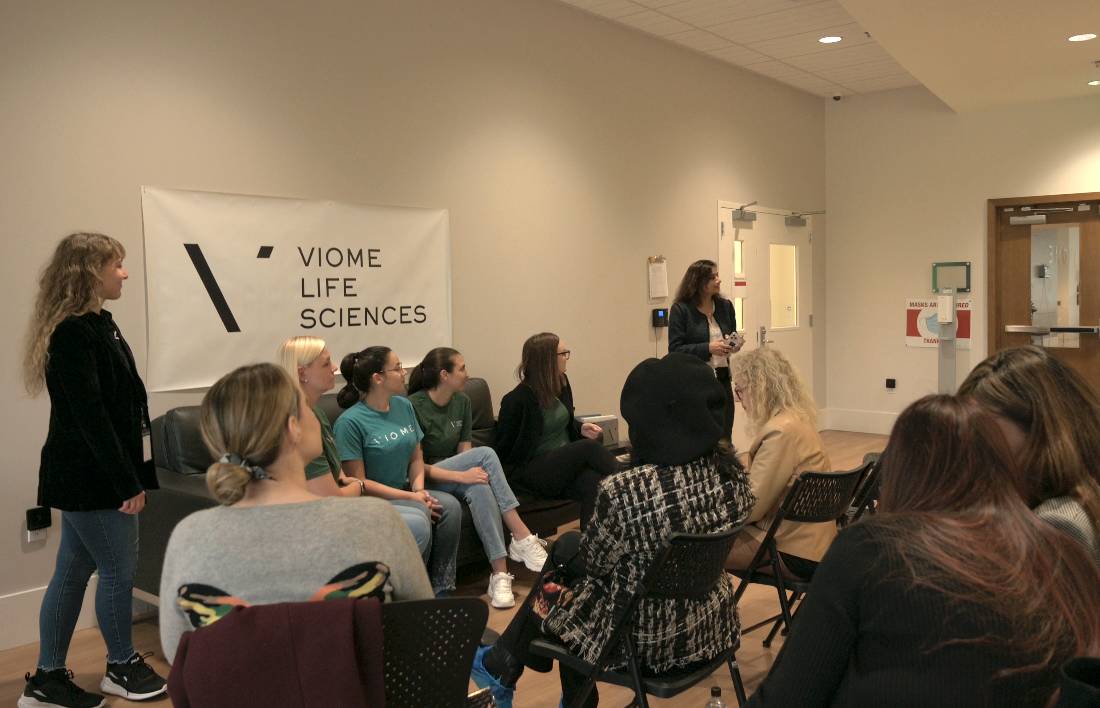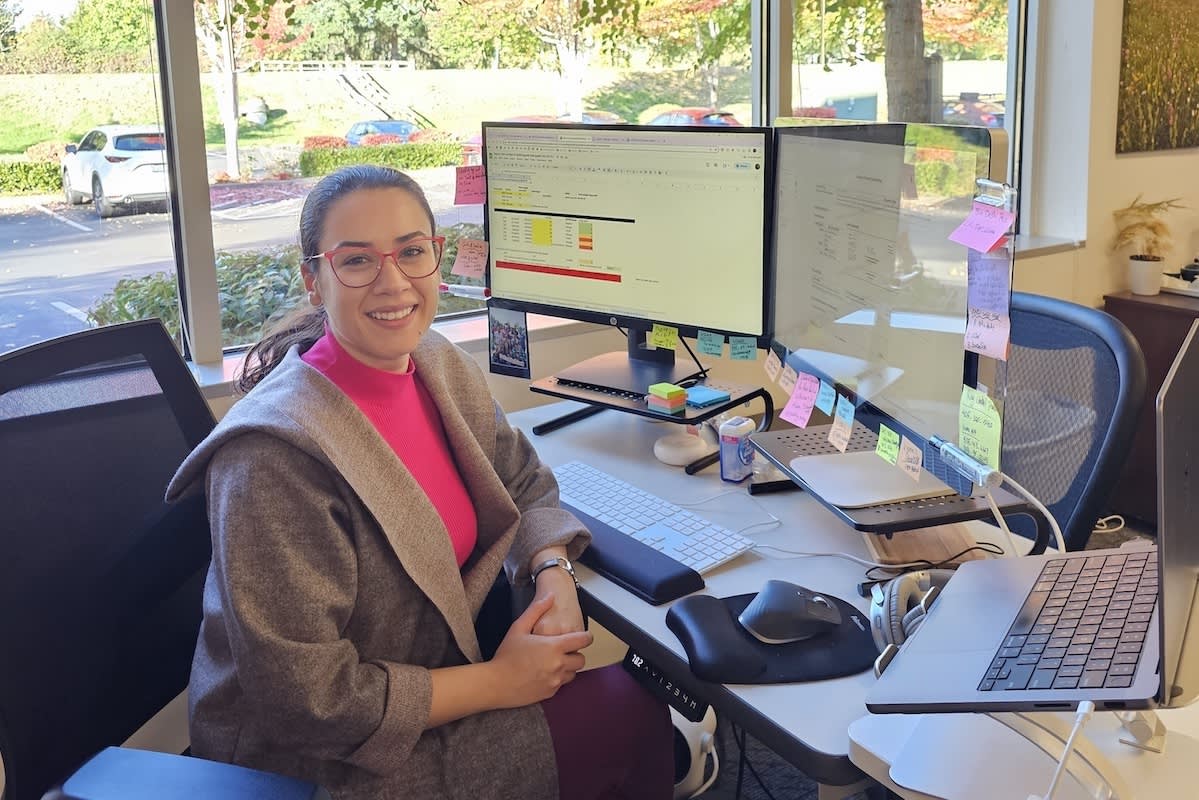
Your samples are in expert, caring hands at Viome
The Viome Lab in Bothell, Washington, is home to a fantastic group of scientists, lab technicians, clinical study and research scientists, data engineers, and so many more humans who bring their brainpower to the big picture of scientific innovation. It’s the hub where your personal samples travel from all over the world for analysis, then translated into your personalized test results and food & precision supplement recommendations. But–simultaneously, deep research is conducted to further our understanding of health and how we can stay healthier, longer.
With the help of teammates like the special person we are focusing on for this story, we are getting closer and closer.
Spotlight on: Mariya Pavlova, Viome Accessioner and Lab Assistant

Mariya Pavlova works in the clinical laboratory department at the Viome Lab and enjoys ensuring that her work helps the laboratory process customer samples smoothly and successfully. We talked to her about how she got started in her science career and how she made her way to Viome.
Tell us a little bit about your history. How did you get your start in science?
I was a student at the University of Washington Bothell, and I went there for two years to get my degree in biology. So I graduated in June of 2023 with a bachelor's in biology. The way that I got into science was I actually had a health problem.
I came to find that I was malnourished, I was over-exercising, and I was overstressed. And so that led to me losing my monthly cycle. I had read a little bit about the microbiome and that if you feed it properly, you'll be healthy. And I was really interested in that research. I also read that the antibiotics that are commonly prescribed to us can actually hinder the gut microbiome's ability to function properly.
When I went to the doctor's office and presented my health issue, they prescribed antibiotics. I did not want to take them because, personally, my belief is that antibiotics are more like a bandaid. They do not address the root cause of the issue. They just address the symptoms at a very surface level. So I really wanted to know why I was experiencing this and how I could fix it using food as medicine.
That's when I became interested even more in the microbiome. At the same time, while I was a first and second-year student at UW Bothell, I realized that there were tours going on at Viome. I decided to sign up for the tour to see what the lab was like. I visited, and I realized they were researching the gut microbiome. I was incredibly excited by that because it was exactly in line with my interests. After the second year, when I had my degree, I was invited to apply. I was hired on as an accessioner.
What was your initial impression of the lab and the work being done at Viome, and what made you want to join the team?
When I initially toured the lab and saw all the amazing women who were in STEM, I felt inspired. As a woman in STEM, sometimes it can feel a little bit lonely. Sometimes you feel like it's a heavily male-dominated field, and it has been for generations.
I was really empowered by the women that I saw, and I just admired how smart, friendly, and inquisitive they were. And the science field, to me, is founded by people who are inquisitive and ask those questions no matter how deep or surface level they may seem. I was really inspired to join the Viome team, and I wanted to showcase the scientific brain I also have. I always want to know what the root causes are, why this is happening, and how it can be better.
Tell us a little about what you do at the lab and how it’s part of the bigger picture at Viome.
I was hired at Viome in December of 2023. Here at Viome, I work in the accessioning department. We are the first point of contact between the customer sample and the lab. We do an initial quality inspection. We make sure that the sample meets our criteria so that we can process it and run it through the lab and make sure that we don't run into any issues downstream.
So officially, my title at Viome is Accessioner and Lab Assistant. My team and I are the first point of contact for the customer sample. We receive the customer sample through the mail, open the packages, and then verify, okay, is it a Gut intelligence kit, is it a Full Body Intelligence, or is it Health Intelligence? And then we sort it accordingly.
However, this preliminary process of quality control affects everything that happens with the sample in the lab. We do a quality analysis, ensuring that the sample volume is high enough, ensuring that the RPB preservative solution is still in there, as it helps downstream for the testing process. So if our department fails to do the proper job, it's going to affect other departments and the testing process downstream, and it will take longer for the customer to get their results. So that being said, it is very important for me and my department to be very accurate.
It's very important for me and my team to maintain accurate results as we are also in charge of manually pipetting the samples and using automation to help streamline that process. So everything that we do affects departments downstream in the lab. That is why we always want to do our best work.
Is there anything you're working towards at Viome that you’re looking forward to accomplishing this year?
My team and I are currently working on what we call partial kit reissues. This can happen if the patient's sample comes to us and does not meet our initial criteria and fails those first quality inspections. If we need to reject the sample at that time, the customer will automatically be reissued that component of that kit that we had to reject (stool, blood, or saliva).
For example, let's say a customer ordered a Full Body Intelligence kit, which includes blood, saliva, and stool. If it happens that the blood tube has a very low volume, or we believe it won't get enough RNA reads, we will reissue that particular component at no extra cost to them because this helps maintain customer satisfaction. We want to make sure that everybody gets the best test results possible. My team and I are working on developing that and streamlining that process.
Personally speaking, my goals here at Viome are to keep learning about the company and the people because fascinating clinical research is being done here every day. This field of research is actually quite new, and there are constantly new discoveries being made, and I would love to be a part of that. I also want to get to know the people on the team more because I am working alongside very intelligent, very smart people who are always willing to share that information as long as you ask.
What have you learned about yourself and your own personal health while working at Viome that surprised you?
While working at Viome, I’ve learned that I am in full control of my health. As such, it’s up to me to take care of it! Fortunately, not every ailment requires intensive medical care and modern medicine. Sometimes, it's about taking the time to listen to your body and seeking alternative approaches that support your microbiome's health. If you nurture it now, you are acting in the best interest of your long-term health and longevity!
What is your favorite superfood?
My favorite superfood is plain yogurt! It contains live cultures called probiotics, which improve your gut health and combat "bad bacteria." Specifically, I look for brands containing L. bulgaricus because it has many known health benefits and is native to my home country, Bulgaria! Also, it pairs nicely with two other superfoods I enjoy: berries and nuts.
Do you have any advice or thoughts for other women out there who are curious about STEM and want to know more or get involved?
First, let me say that I am also in your shoes. The STEM field is very dynamic, so there's always more to learn, which really keeps you on your toes!
My best advice would be to let your curiosity run wild because the field itself is founded upon people who were inquisitive and asked questions (think of strong, female role models such as Marie Curie and Florence Nightingale). Even if your ideas are initially rejected, even if you feel like the questions you are asking are not smart, or even if you think the answers are beyond you, ask. Never be afraid to because, for those who never ask, the answer will always be “no.”
Thank you, Mariya!



